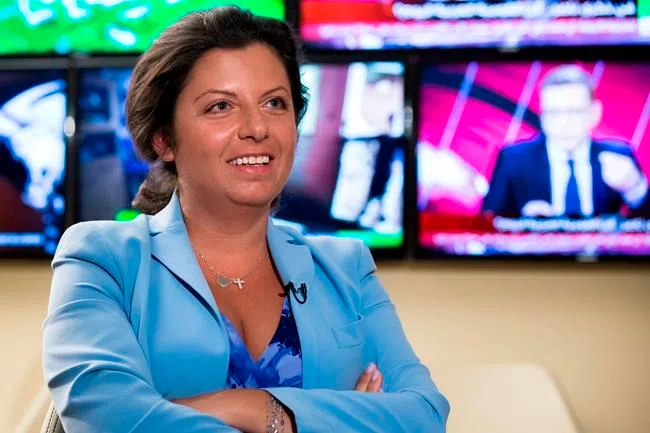
Head of Russian outlet RT says US foreign agent order hurts
MOSCOW — The head of the Russian television channel RT wants the United States to live up to its ideals of freedom of speech. Yet American journalists attuned to those principles have not defended the former Russia Today network in its fight with the U.S. government.
RT editor-in-chief Margarita Simonyan said in an interview that the U.S. government’s requirement that it register as a foreign agent has damaged RT’s reputation and led it to being shut out of events. It runs counter to American values, she said.
“The U.S. has now become a beacon, a leader, in this movement to shut everyone up,” Simonyan said in an Associated Press interview at RT’s Moscow headquarters. “That’s so disappointing.”
RT says it is a legitimate news organization, comparable to Britain’s government-supported BBC or the U.S.-funded Voice of America. But an expert at George Washington University who has studied RT’s content said the network is a propaganda arm of the Russian government designed to make its benefactor look good.
